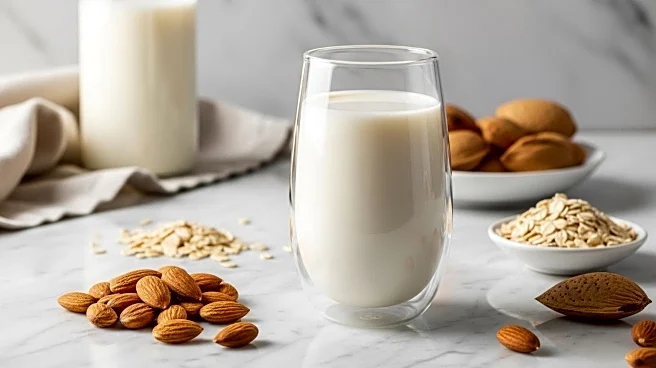What's Happening?
The dairy alternative market is experiencing challenges with declining sales, prompting innovation in plant-based products. Companies like Burcon NutraScience Corp. are developing new plant proteins from sources such as peas, canola, and fava beans to improve the nutritional profile and taste of dairy alternatives. These innovations aim to bridge the protein gap between plant-based and conventional dairy products. The use of enzymes and starches is also being explored to enhance texture and stability in products like yogurt and cheese alternatives.
Why It's Important?
The push for improved dairy alternatives reflects a significant trend in consumer preferences towards plant-based diets. As the demand for sustainable and nutritious food options grows, the development of high-quality plant proteins could reshape the food industry. This shift has implications for environmental sustainability, as plant-based products generally have a lower carbon footprint than animal-based ones. Additionally, advancements in food technology could lead to more competitive products that meet consumer expectations for taste and nutrition.
What's Next?
Continued research and development in plant-based proteins are expected to drive further innovation in the dairy alternative sector. Companies may focus on enhancing the sensory appeal and nutritional content of these products to capture a larger market share. Regulatory developments and consumer feedback will likely influence the direction of these innovations, potentially leading to new product launches and partnerships within the industry.
Beyond the Headlines
The evolution of dairy alternatives also raises questions about the economic impact on traditional dairy farmers and the potential for job creation in the plant-based sector. As the industry adapts, stakeholders may need to address these challenges to ensure a balanced transition.









